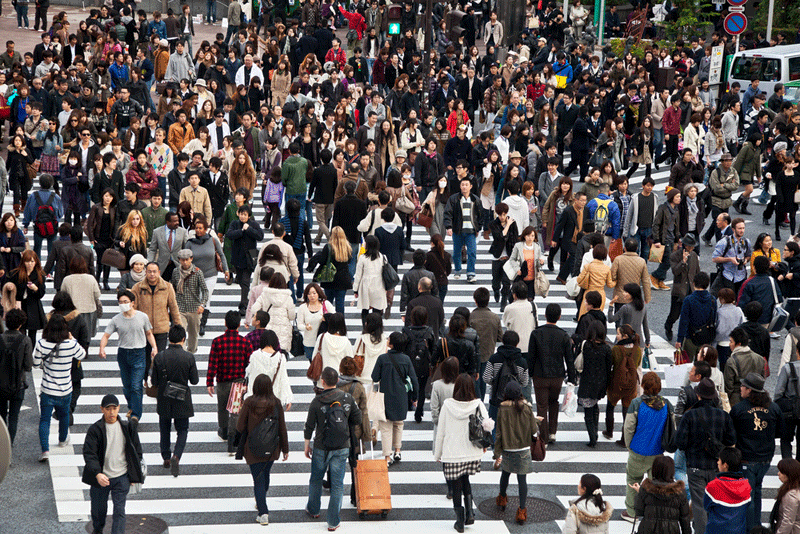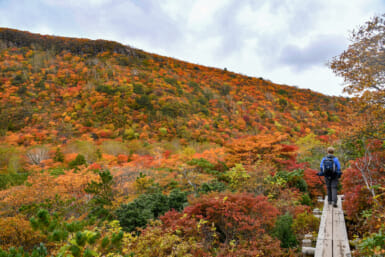We all know the story. Japan is a nation of people just a few generations removed from centuries of splendid isolation.
While the rest of the world was out there going about its business—exploring, conquering, being conquered, assimilating, pillaging, building and generally testing the traditional limits of social, cultural and political issues—the Japanese were focused instead on internal matters important in their essentially feudalistic society.
This is not to say “the rest of the world” had it right and the Japanese were merely quaint anomalies in the laboratory of life. From the individual’s standpoint, there’s a lot to be said for the stability afforded by feudalism. Roles are clear—production quotas of goods going up the line and directions of behavior coming down the line are unequivocal.
I would think that worrying about getting the rice planted before the We Have Already Planted The Rice Festival is infinitely preferable to going off in a leaky galleon for two years, discovering, among other things, that leather boots rot in the tropics, poison dart guns can be very accurate, insects without names crawl up your legs and picnic in your crotch, your teeth fall out, the trip home is delayed six months while the captain regains his senses, and the Queen who would reward the explorers has abdicated to Munich leaving in her wake a socialist government.
The point, however, is that today is today. And a singular vestige of the good old days of isolation and feudalism remains. It causes more heartache, misunderstanding and general mischief than anything I can think of. It drives most non-Japanese (and, surprisingly, quite a few Japanese) up the wall.
The vestige is represented by “the insider/outsider” complex— the tendency to rate people as to where they stand relative to “the system.” Good people work within the framework of the system, are productive and conform to group goals which gets the damn rice into the ground before the festival. Bad people do not work within the system and are ostracized to the very edges where they do the “dirty jobs.”
When the good people, the overwhelming majority, see themselves as being essentially all the same, the “outsiders” really haven’t a prayer of integrating fully into the whole. Ask the “Japanese” whose ancestors tanned leather or worked with four-legged animals. Marry the daughter of a respected “insider”? Not even in this day and age, or at least not with the blessings of the community.
Now, along come the non-Japanese—the real foreigners. Can there be anything but “us or them,” wrought very large? Not here. Not yet.
“Are you a typical American (Canadian, Englishman, Australian, Nigerian, Indian)?” Categorization sorts out and puts the “thems” in their place, after all, the “us” crowd is well-defined and in the feudal system has been for centuries. (And to make matters worse, as is the case with many foreigners over here I’m not even typical within my own family, let alone my country.)
Without reservation I applaud any and all attempts to erase social, ethnic and racial bigotry which, in effect, the “us or them,” “insider/outsider” dichotomies lead to. As many of my acquaintances and all of my friends can attest, I’m a man of relatively few hard and fast principles. I have shifted stances more than a break-dancer on speed.
But “pre-judging” people based upon the academically overlaid categories of human beings on this earth is flat-out, take-no-prisoners, shoot-me-in-my-shoes wrong. And I believe Japan will never grow up until most people begin to see the wisdom of that point of view. Period.
How to erase the vestiges of the old style in Japan is the big question. Homogeneity is the stumbling block, but it certainly is not practical to throw open the borders of the country and immediately integrate the country with millions of non-Japanese merely to promote diversity. The roads are already crowded enough.
Education is one venue, but we’ve all seen how long it takes to get folks around here to say “howdy” in English. The pluperfect must be mastered first for the examination. (The plu-what?)
I’ve been following the adventures of the former American, now Japanese man who is suing the operator of a bathhouse in Hokkaido. He was denied entrance because “he was a foreigner” and then, when it was revealed he had assumed Japanese citizenship, “he still looked like a foreigner.”
Lawsuits force the issue, and the results are more immediate than whatever develops from education. I don’t know what’s better, but I still say “go for it.” Human beings, whoever they are, have rights.
Now then, very quietly (and keeping in mind my principles) think of this on a whole different plane. Don’t talk to anyone about it, just think.
The bathhouse operators in Hokkaido closed their establishments to “foreigners” because apparently a number of Russian seamen off the ships came in and behaved like jackals.
About the time that was happening, I was visiting a bathhouse in my Higashi Nakano neighborhood. I used to visit the bathhouse in Azabu Juban once or twice a year for the “experience” of the whole deal, and I still make at least an annual visit to the joint in my current neighborhood for the same reason.
Almost in a trance, I flip-flopped into the place, paid the fee, took off my clothes, went in and sat on a stool, washed myself ever so carefully, repeated the routine, then slipped into the bath.
Already in the bath were the guy who runs the beer store near my house, the guy who runs the convenience store on the comer and the man who scoots around the neighborhood in a wheelchair. The real estate man, minus his wig but with a towel on his head, was also there. No one exactly acknowledged anyone, but we all know who was there and we all knew each other. It was comfortable, soaking and steaming.
Then two more foreigners arrived. These guys began flopping around in the water, splashing each other, diving beneath the surface attacking each other’s private parts and generally sporting about in high school locker room fashion.
They eventually left. The beer store guy, the convenience store guy, the wheelchair guy and the real estate guy (wearing a hat) eventually left. It had been a jarring, uncomfortable session.
Will the bathhouse owner ban foreigners? I don’t know. I hope not. But looking at it from his point of view, I can imagine it. “Outsiders.”
Image: Thomas La Mela / Shutterstock.com









